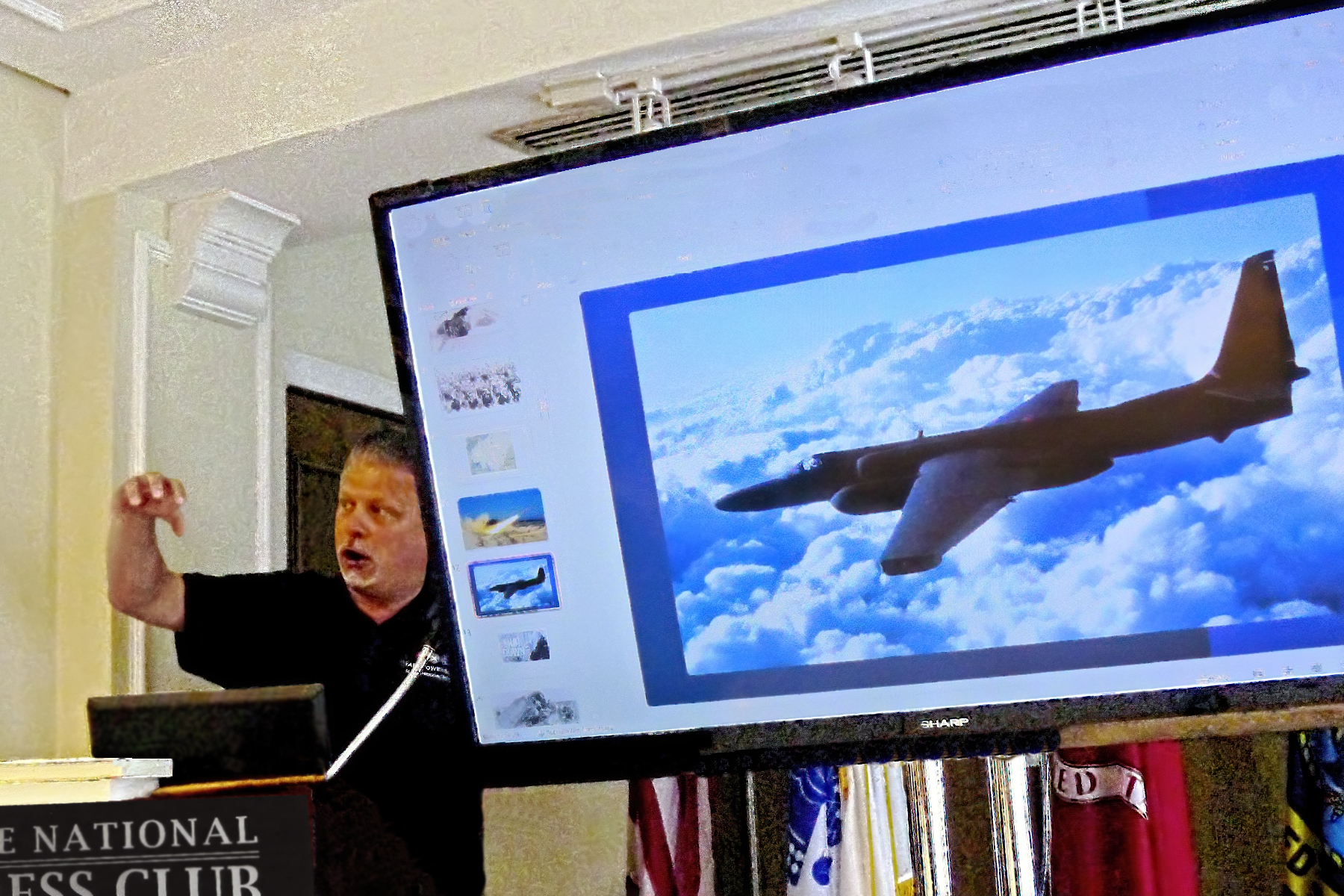Powers, who was 12 when his father died in a helicopter crash in California, began looking into the U-2 incident while a philosophy student at California State University. There were rumors at the time that his father may have defected to the Soviets because he did not self-destruct his spy plane or use CIA-supplied poison to kill himself. While generally pleased with the 2015 movie "Bridge of Spies" on which he served as a consultant, Powers said one inaccuracy was perpetuating the suicide myth: U-2 pilots were not expected to kill themselves to avoid capture, but could commit suicide to avoid torture.
Son of U-2 pilot Francis Gary Powers recounts dad's saga
The rumors surrounding U-2 spy-plane pilot Francis Gary Powers' mission and capture in the Soviet Union 60 years ago were the "fake news of the time," Powers' son Francis Gary Powers Jr. told a gathering of the National Press Club American Legion Post 20 on April 11.
The younger Powers, born five years after his father's shoot-down at the height of the Cold War, told a packed room of Post members and guests that his 30-year quest to dispel doubts about his father's actions "goes to show that it's never too late to set the record straight. His reputation is now intact."
He said his father's failure to commit suicide, rather than be taken captive, and rumors about his loyalty are examples of "fake news of the time" exacerbated by the CIA's refusal to set the record straight because the misinformation helped keep secrets. "Dad wished the CIA had done more" to clear his name, Powers said.

The senior Powers was an Air Force fighter pilot when recruited by the CIA for top secret high-altitude spy flights over the Soviet Union and other hostile countries in the years before sophisticated spy satellites. He flew 27 missions over four years before a Soviet missile crippled his plane at 7,500 feet deep inside Russian territory. He was unable to reach a self-destruct button while struggling to bail out of the tumbling aircraft, Powers said. His father misled harsh KGB interrogators about the U-2's capacities before receiving a 10-year prison sentence. He was freed in a prisoner exchange 18 months later and exonerated for his actions after three weeks of debriefings by the CIA and eight hours of testimony before the Senate Armed Services Committee.
During a speech attended by the pilot in 1964, CIA Director Allen Dulles said, "He performed his duty in a very dangerous mission and he performed it well, and I think I know more about that than some of his detractors and critics know, and I am glad to say that to him tonight." His posthumous awards included a Prisoner of War medal, the Distinguished Flying Cross, and the CIA Director's Medal. Previous awards include a Silver Star, Intelligence Star and Korean Service Medal. Speculation about Powers' death in a news helicopter crash in 1977 suggested it may not have been an accident, but his son said he believes the helicopter did run out of gas because his father misread a fuel gauge after its repair.
The Post 20 meeting, speaker portions of which are open to all NPC members, was its first in-person meeting in two years due to the coronavirus pandemic. Post Commander Jim Noone noted that it was also carried virtually for those who could not attend in person.
